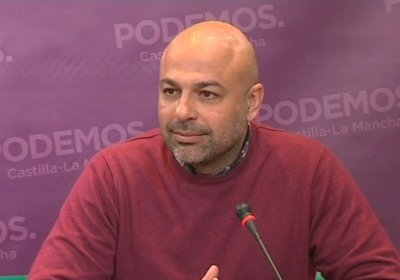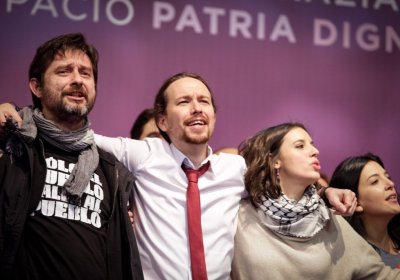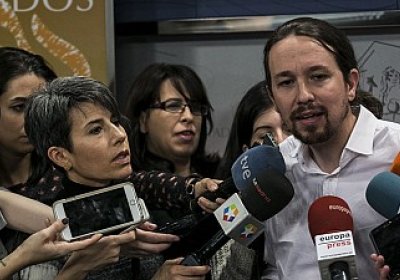Following betrayal and expulsion, Forward Andalusia has regrouped and relaunched, reports Dick Nichols.
Podemos
In regional elections in Andalusia on December 2, the outgoing government of the Spanish Socialist Workers Party (PSOE) was defeated after 40 years in power. Defeat came at the hands of a fractured yet radicalising right and high levels of abstention on the left.
In 1713-14, it took the troops of Spain’s Borbon monarchy 14 months to take Barcelona and end Catalan self-rule. Three centuries later, Catalonia is again under siege, this time from the central Spanish People’s Party (PP) government.
Under Prime Minister Mariano Rajoy, the Spanish state is concentrating all its firepower on stopping the Catalan government’s October 1 independence referendum, where Catalan citizens will be asked to vote on whether “Catalonia should become an independent state in the form of a republic”.
On September 26 last year, Podemos’s Castilla-La Mancha secretary-general Jose Garcia Molina said that his party’s agreement keeping the regional Spanish Socialist Workers Party (PSOE) government in office in the autonomous community had “died of depression and shame”.
The plan had seemed so well organised.
Its first stage was executed on October 1 last year when the ruling elite of the Spanish Socialist Workers Party (PSOE) got the party’s Federal Political Committee (FPC) to force the resignation of general secretary Pedro Sanchez.
Two major anniversaries recently marked the significant change that has taken place on the Spanish left in the last several years.
May 15 was the sixth anniversary of the Indignados mass mobilisations and protests against the brutal austerity unleashed by Spanish government in the wake of the economic crisis. Meanwhile, May 25 marked the third anniversary since the emergence of Podemos as the political voice of the anti-austerity movement with the election of the five Podemos candidates (including key leader Pablo Iglesias) into the European Parliament.
The struggle to build a united left force with enough support to implement real social and environmental change took a crucial step forward in Barcelona on April 8.
On a bright spring day, the new Catalan “political subject” provisionally called Un Pais En Comu (“A Country Together”) held its founding congress.
The group, whose definitive name will be decided by membership referendum, is the third Catalan left unity project with “en comu” (“together”) in its title.
In the end, the expected close result never happened. At the second congress (“citizens’ assembly”) of Spain’s radical anti-austerity party Podemos, the proposals and candidate list of outgoing general secretary Pablo Iglesias easily defeated those of his rival, outgoing political secretary Inigo Errejon.
In a December Podemos membership vote over the rules that were to govern the congress, Iglesias’s position had only won marginally (41.57% as against 39.12% for Errejon’s).
The left-wing anti-austerity party Podemos is planning to hold its second country-wide citizens’ assembly (Vistalegre II) on February 11th-12th to decide the political direction, organisational structure and its electoral strategy for the next regional and general elections.
Spanish anti-austerity party Podemos held a series of internal elections over November 7–9 throughout seven regions across Spain — Madrid, Andalusia, Extremadura, La Rioja, Castilla y Leon, Navarra y Aragón — and 12 different cities.
The elections were centred around the positions of the general secretaries in each region and territory, as well as the Autonomous Citizens’ Councils that form an integral part of the relatively new party’s political direction and organisation.
In the end, on October 29, it all worked out rather well for Mariano Rajoy. After patiently implementing his motto that “all things come to he who waits”, the leader of the conservative People’s Party (PP) was that day confirmed as Spain’s prime minister for a second four-year term.
Normal operations were apparently resumed in the institutions of the Spanish state after 10 months of turmoil arising from the inconclusive general election results of December 20 and June 26.
- Page 1
- Next page











